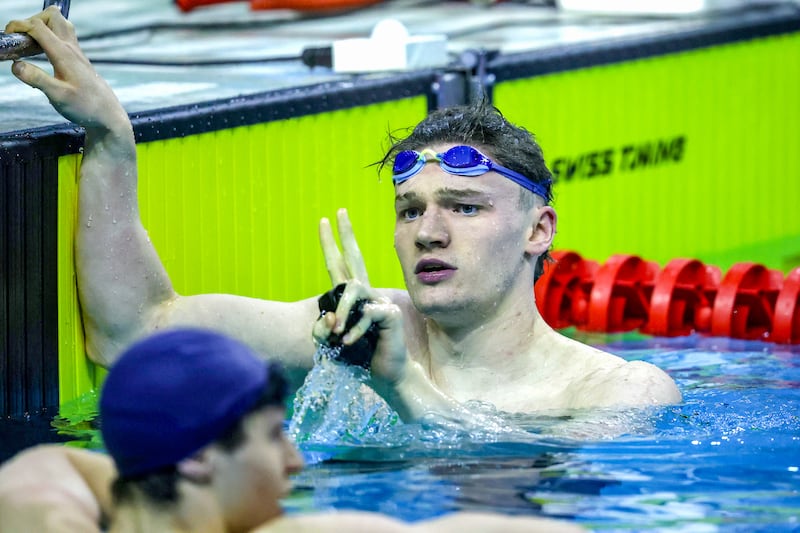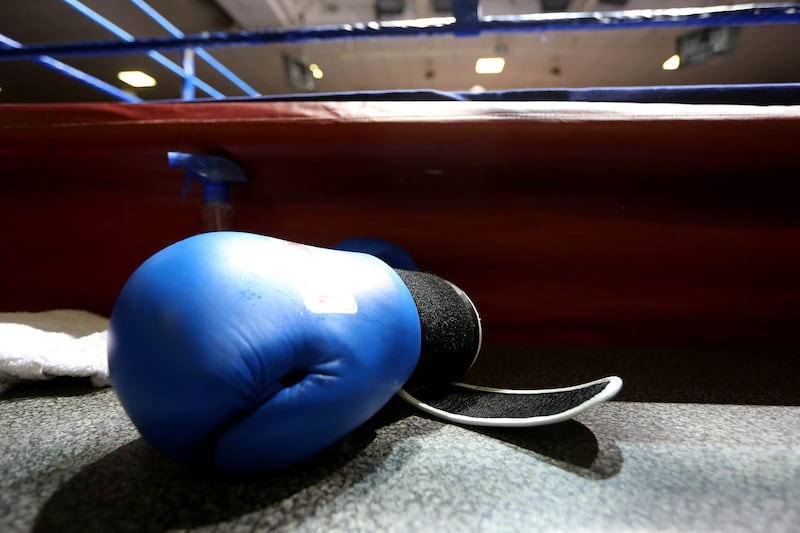The day after Russia launched its all-out invasion of Ukraine in February 2022, Yevgeny Lyamin was detained at an anti-war protest in Moscow, and a week later he was starting a new life 2,000km to the south in Tbilisi, the capital of Georgia.
“Since 2017 I had regularly attended [opposition] protests,” says Lyamin, who worked on a project called Prostranstvo Politika [Political Space] that encourages civic engagement among young people in cities across Russia.
“I thought that at some point I might have to emigrate and from 2018 I collected funds just in case I needed them. It turned out to be good planning.”
About one million Russians are thought to have fled their homeland since the start of its full-scale war with Ukraine, hundreds of thousands of whom travelled to Georgia. Many carried on to states in central and western Europe, but this country of 3.7 million people is now home to about 100,000 Russians, most of whom arrived since last year.
RM Block
Georgia is in some ways an obvious choice for Russians seeking refuge, and in other ways surprising.

Lying between the Black Sea and the Caucasus Mountains, Georgia’s stunning scenery, fine food and wine and famous hospitality made it a popular destination for generations of Russians, whose language is still widely spoken here, especially by older locals who grew up when Georgia was part of the Soviet Union.
Yet it is only 15 years since Russia crushed Georgia in a brief war and recognised the independence of two of its regions, Abkhazia and South Ossetia, which with Moscow’s help had broken away from Tbilisi’s rule in bloody conflicts in the early 1990s.
The Kremlin effectively controls 20 per cent of Georgian land, and its troops often detain and occasionally attack Georgians near South Ossetia; in the village of Kirbali earlier this month, Russian soldiers shot dead one local man and abducted another.
Russian president Vladimir Putin’s interference in Georgia is aimed at hampering European Union and Nato membership ambitions that are backed by a huge majority of Georgians, and graffiti all over Tbilisi expresses in vivid colours and colourful language the strong public support for Ukraine that is clear from polls. A Ukrainian football chant, “Putin khuilo!” (“Putin is a d***head”), is also plastered across many city walls.

“Of course, Georgians have a right to hate us,” says Lyamin.
“We try to change minds [and show] that Russian society and all Russian people are not the Russian state and not Putin. We have very different segments of society and the ones who came here are pro-liberal and pro-democratic, they support Georgia and its way to the EU and Nato,” he adds.
“This is about the very difficult relations of two countries, and it is not only about [the period of] independent Georgia – it is about the Soviet Union, the period of the Russian empire, and it is a de-colonialisation and de-Russification discourse. That’s very important for Georgian society.”
Lyamin says he and like-minded compatriots have no problem with the graffiti here, even if much of it tells all Russians to leave Georgia.
“I understand the context and Georgian society has a right to do it. This is their country, and Russia and its political regime are a big threat to Georgia,” he says.
“The situation could only be changed after the democratisation of Russia and Russia having good relations with neighbouring countries, and after occupied territories are freed from Russian influence and Russian forces.”
Lyamin immediately started volunteer work when he arrived in Tbilisi and cofounded Emigration for Action to buy medicines for Ukrainian refugees in Georgia, including cancer treatments and other expensive drugs. Since April 2022, the group has helped some 8,000 Ukrainians and collected more than $250,000 (€229,000) in donations, most of it from Russians abroad but a substantial amount from people still in the country.
“Our group is about Russians emigrating to act in support of Ukraine and Ukrainian refugees, and in support of liberal values and democracy,” he says of Emigration for Action, whose 50 or so volunteers are mostly Russians but also include Belarusians, Ukrainians and occasionally Georgians.
Lyamin hopes all Russian volunteer groups in Georgia can “widen the active community” and engage the many Russians who try to avoid politics, having seen Putin’s regime largely succeed in crushing civic solidarity in their homeland.
“We have a direct message to all Russians here that we need to act together, that community building is a very important goal,” he says. “It is about trust, self-support in the community, making new contacts and the grassroots logic of acting together”.

Elizaveta Pakhomova, a social worker from St Petersburg, moved to Tbilisi with her husband, a computer programmer, in July 2022. Fear of the brutality of Russian police had always deterred her from joining anti-Putin protests, she admits, and after the full invasion of Ukraine fear that her husband would be forced to fight spurred them to emigrate.
“We expected [military] mobilisation and were afraid the borders would be closed, and we’d be stuck in Russia for 70 years like in the Soviet Union,” she says.
“And I just cannot stand living there. I support Ukraine 100 per cent in this situation and it is unbearable to see all these signs of war in Russia, like the letters Z and V (military symbols of the invasion). Even talking about it feels horrible to me, it is all so disgusting.”
Pakhomova is the only Russian in a Ukrainian volunteer group in Tbilisi called Tvoia Ukraina (Your Ukraine), which offers clothes, food and other essentials to Ukrainian refugees and arranges painting and other classes for children and hosts Ukrainian film nights.
“I thought there might be some Ukrainians in this organisation and some Russians and Belarusians,” she says. “Then I realised this is Ukraine-Ukraine, and it’s okay – everyone is friendly and kind and we have absolutely no problems with each other.”
[ The Irish Times view on Georgia and the EU: the slow road to accessionOpens in new window ]
Many Georgians are uneasy, and some angry, about an influx of Russians that has not only made their language ubiquitous once more in Tbilisi and the coastal city of Batumi, but also driven up property prices and added to steep inflation in other sectors.
In July, hundreds of Georgians protested against the arrival in Batumi of a Russian cruise ship that was reportedly carrying singers who publicly backed the invasion of Ukraine. That came two months after Russia and Georgia resumed direct air flights, following a four-year ban imposed by Moscow following anti-Russian demonstrations in Tbilisi.

Georgia’s government insists it is still pursuing EU membership, but has refused to join western sanctions against Moscow or provide arms to Kyiv, and it accuses the West of trying to drag it into the war. Multiple sources also say Russian influence is once again growing in Georgian politics and business.
“There are many pro-Ukrainian demonstrations here and it is shameful that our own government is not supportive to Ukraine. I think about it every day – how can you not be supportive to Ukraine when it is fighting our fight and several thousand Georgians are fighting for Ukraine?” says Eka Gigauri, executive director of Transparency International Georgia, whose mother is from Kharkiv in eastern Ukraine.
“It makes people angry for many reasons,” she says of the influx of Russians to Georgia and the government’s creeping rapprochement with Putin.
“I cannot dislike someone because of their nationality. But it is very painful. Especially at the beginning, we were all shocked, and what was happening in Ukraine brought back memories of the 2008 war here, and it was like it was happening again.”

Egor Kuroptev, Tbilisi-based director of the Free Russia Foundation in the South Caucasus, says anti-Putin émigrés in Georgia must contend not only with the government’s warming relations with the Kremlin, but also Russian spies sent to Georgia to infiltrate the exile community.
“In Georgia, you’re not on the frontline but you’re close to it,” he says.
“In Europe, things are more calm and stable and you don’t see ‘F**k Russia’ on every building – but that’s actually demoralising, because when we see it, we want to do more ... because we know we’re responsible for our country and totally understand the anger of the Georgian people,” Kuroptev adds.
“Of course we’re responsible, but that doesn’t mean we should sit and cry about it. It means you cannot stop and must do whatever you can, every single day.”






















